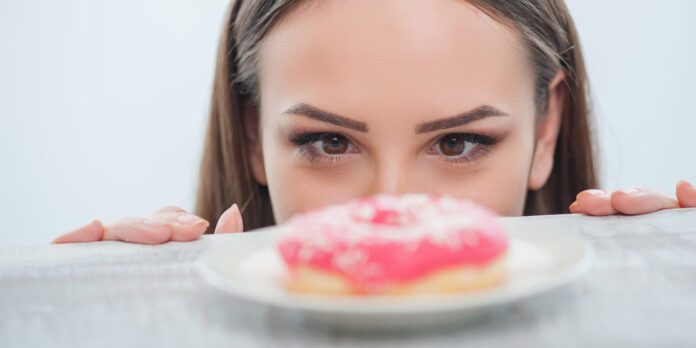Cravings for that bag of salty chips or a chocolate bar are urging you to answer the call—and to ignore that healthy apple stashed in your desk. But does the desire for those treats reflect your body’s need for salt and sweet, or is the craving all in your head?
Why do we get cravings?
Cravings occur for many reasons, but, more often than not, hunger is not one of them. The desire for a specific food can stem from a variety of physical and psychological causes.
On the physical spectrum, low levels of serotonin, the hormone secreted in the brain that is responsible for feelings of well-being, can lead to cravings—particularly for carbohydrates and sugars, as they can help increase serotonin. Often this can lead to sugar addiction; you feel better when you ingest the candy bar, and then when the effect wears off, serotonin drops and the cravings start all over again. Imbalances in other hormones can also result in cravings. For example, when a person is under stress, the body increases production of cortisol, a cycle that can lead to fatigue and more cravings.
In addition to hormonal triggers, the body’s physical response to dieting or fasting can produce physical cravings for foods that are too severely limited. When intake of healthy food is inadequate, our body lacks the energy it needs to function and we experience a “crash,” which can induce cravings, especially for carbohydrates and sugar.
What about our habits?
Emotions and behavioral habits can also play a significant role in cravings. For instance, if you grew up eating dessert after dinner every night, you may continue to crave sweets most nights as an adult. Similarly, if you were offered a treat every time you encountered a challenge or experienced hurt or sadness as a child, you will continue to look for comfort food when you are uncomfortable as an adult. If you always have popcorn at the movies, that habit will induce you to crave popcorn at the theater or while you are watching television at home.
Even our personality traits affect cravings. It has been shown that impulsive people have a greater tendency to give into temptations compared with others. There is even a correlation between those who think more about cravings: those who deliberate more have a harder time resisting temptations. The inability to control cravings may reinforce a vicious cycle that further weakens self-control.
What can one do to control the cravings?
A little homework about your habits and emotions related to food is helpful in devising a plan. Ask yourself, What types of foods do I generally crave? Are they salty, fatty, or sugary? (Typically, men crave more high-fat, salty foods, such as chips and pizza, while women crave more carbohydrate foods such as starches and sweets.) Then ask yourself, What is my emotional state when I get cravings? Is there a pattern to the events that surround periods of craving? Asking yourself these questions can help you become more mindful about your eating habits, inspiring you to think more carefully about your cravings and present the opportunity to make better choices.
Once you have identified some of your habits and triggers, the next time a craving arises, consider employing some of these strategies to avoid impulsive or habitual snacking:
- Next time you start craving something unhealthy, opt for a small healthy snack instead. Smart snack choices contain a high-fiber carbohydrate, some lean protein, and healthy fat. Choosing a healthy snack can satisfy your hunger and keep you from giving in to unhealthy cravings.
- Pinpoint the time of day that cravings hit and have a small healthy snack 20 to 30 minutes before the “witching hour” to deter you from needing to fight the cravings.
- Make sure you eat three meals each day, along with one or two small healthy snacks to ensure that you don’t get too hungry and give in to temptation.
- Master the art of distraction to help decrease impulsive behavior. A 20-minute delay will more often than not resolve the cravings. Often what we thought we had to have is not so important 20 minutes later.
- Drink water.
- Do not totally deprive yourself; this can just set you up for more cravings. Once or twice a week, allow yourself occasional indulgences in a social setting or with others so that you limit the amount you eat.
- If you find you experience cravings during times of stress, employ other stress management techniques such as exercise, therapy, or meditation.
While you may not be able to stop cravings for unhealthy foods altogether, you definitely can learn to manage them well enough that they do not harm your health or psychological well-being. Be patient with yourself and practice, practice, practice techniques that can help you be successful. It does take time to change habits. Remember that in all processes of change there will be moments of relapse. Forgive yourself, learn something about what set up the problem, correct it, and move on.




